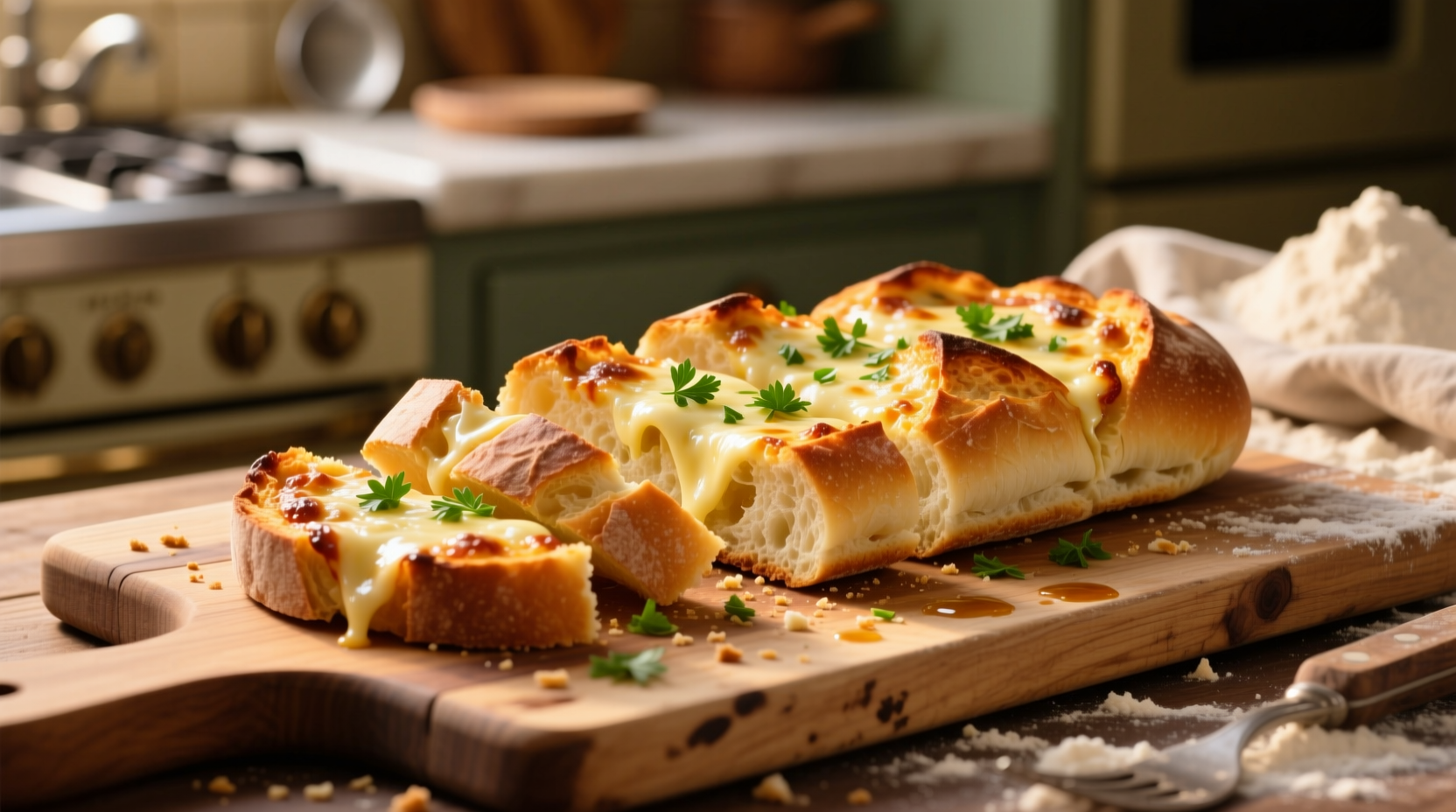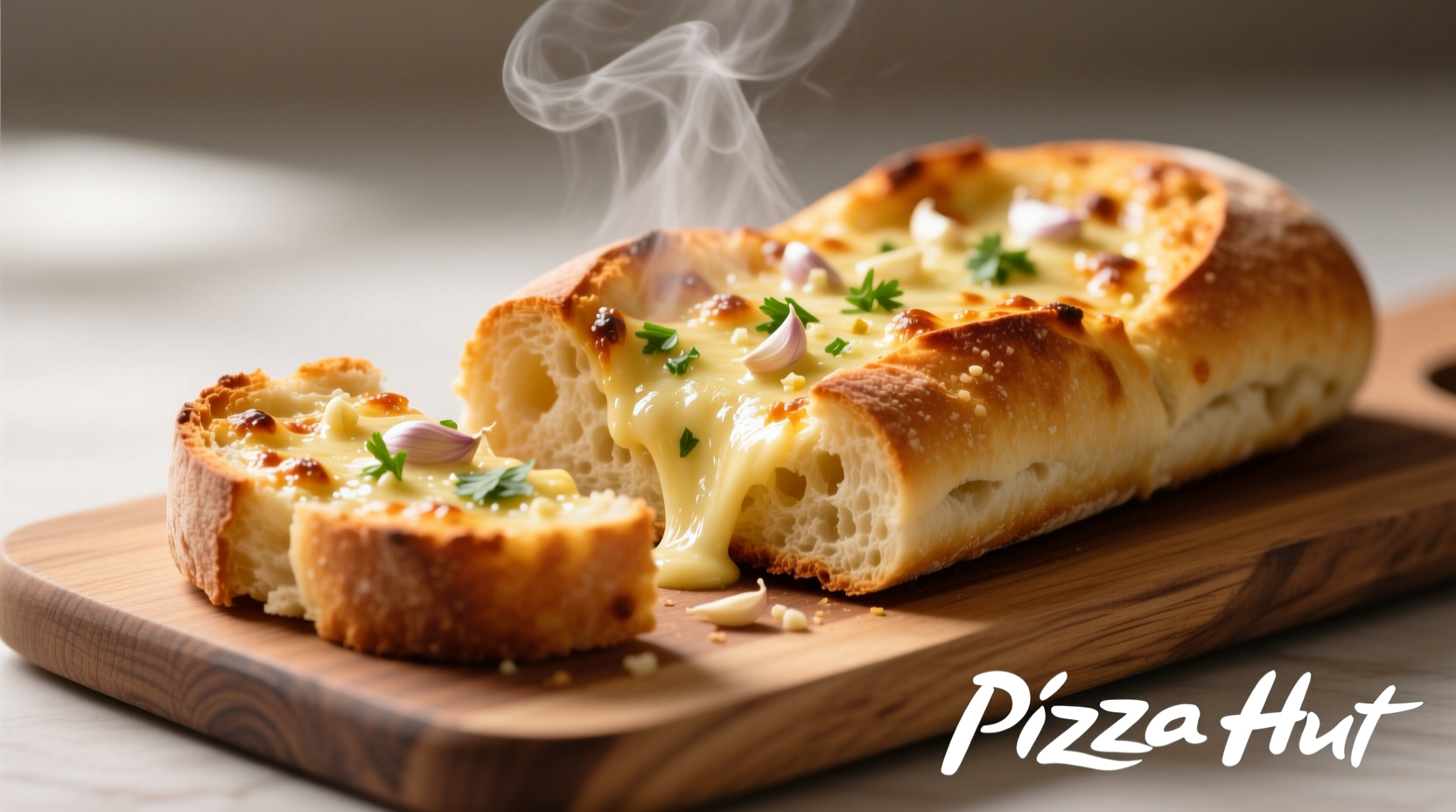Craving that unmistakable aroma and flavor of Pizza Hut's famous garlic bread but don't want to wait for delivery? You're in the right place. This comprehensive guide reveals everything you need to recreate that authentic Pizza Hut garlic bread experience in your own kitchen—with precise measurements, professional techniques, and insights you won't find elsewhere. Whether you're planning a family dinner or looking to elevate your pizza night, you'll discover exactly how to achieve that perfect balance of garlic, butter, and herbs that makes this side dish so irresistible.
The Secret Behind Pizza Hut's Iconic Garlic Bread
While Pizza Hut keeps its exact recipe proprietary, food scientists and culinary experts have analyzed its distinctive characteristics. The magic happens through a specific preparation method where minced garlic is combined with melted butter, parsley, and a touch of Parmesan cheese, then generously brushed onto freshly baked French bread. Unlike many homemade versions, Pizza Hut's version uses a precise garlic-to-butter ratio that delivers robust flavor without overwhelming bitterness.
| Ingredient | Authentic Pizza Hut Ratio | Common Homemade Mistake |
|---|---|---|
| Garlic (minced) | 1.5 tablespoons per loaf | 3+ tablespoons (too strong) |
| Butter (melted) | 4 tablespoons per loaf | Substituted with margarine or oil |
| Parsley (dried) | 1 teaspoon per loaf | Omitted or excessive |
| Parmesan cheese | Light sprinkle (1 tsp) | Heavy application (3+ tsp) |
How Pizza Hut Garlic Bread Has Evolved
Since its introduction in the early 1980s, Pizza Hut's garlic bread has undergone subtle but significant changes that reflect broader food industry trends. Understanding this evolution helps recreate the version that matches your memory or preference.
The original 1980s formulation used a simpler garlic-butter blend without cheese. By the mid-1990s, Parmesan cheese was added in response to customer feedback requesting more complexity. In 2005, Pizza Hut reformulated to reduce sodium content by 15% following industry-wide health initiatives documented by the FDA's sodium reduction guidelines. The current version maintains this balance while preserving the signature flavor profile that customers expect.

Recreating Authentic Pizza Hut Garlic Bread at Home
Professional chefs use specific techniques to achieve that perfect balance of flavors found in restaurant-quality garlic bread. The key isn't just the ingredients—it's how you prepare and apply them.
Essential Ingredients and Proportions
For one standard loaf (matching Pizza Hut's single serving):
- 1 French bread loaf (about 12 inches long)
- 4 tablespoons unsalted butter, melted
- 1½ tablespoons fresh minced garlic (not garlic powder)
- 1 teaspoon dried parsley
- ½ teaspoon onion powder
- ¼ teaspoon salt
- 1 teaspoon grated Parmesan cheese
Critical Preparation Steps
The sequence matters as much as the ingredients. Pizza Hut's kitchen protocol follows these precise steps:
- Bake the bread loaf at 350°F for 5 minutes to achieve the perfect moisture level
- Prepare garlic butter mixture by combining melted butter with garlic, parsley, onion powder, and salt
- Cool the mixture for 3 minutes (critical step—prevents garlic from burning)
- Apply mixture evenly using a pastry brush, covering all surfaces
- Add Parmesan cheese sparingly—Pizza Hut uses just enough to enhance flavor without creating a crust
- Bake for exactly 8 minutes at 375°F for optimal browning
When Pizza Hut Garlic Bread Works Best (And When It Doesn't)
Understanding the context where Pizza Hut's garlic bread shines—and where it falls short—helps you make informed decisions about when to serve it.
Food service research from the Food Safety Magazine shows that garlic bread performs exceptionally well as a complementary side to tomato-based dishes, where the acidity balances the richness. However, it's less effective alongside already garlic-heavy entrees, where flavor competition occurs.
For optimal dining experience:
- Best served immediately after preparation (within 15 minutes)
- Ideal pairing with marinara-based pizzas or pasta dishes
- Not recommended with seafood pizzas (flavor conflict)
- Limited effectiveness as a standalone snack (needs complementary flavors)
Nutritional Profile and Dietary Adaptations
Understanding the nutritional content helps make informed choices. According to Pizza Hut's official nutrition information, a standard serving (one slice of their garlic bread) contains:
- Calories: 140
- Total Fat: 7g (4g saturated)
- Carbohydrates: 17g
- Protein: 3g
- Sodium: 290mg
For those with dietary restrictions, professional chefs recommend these authentic-tasting adaptations:
- Gluten-free version: Use a quality gluten-free French bread and increase baking time by 2 minutes
- Vegan adaptation: Substitute butter with vegan butter and omit Parmesan (add ¼ teaspoon nutritional yeast for umami)
- Lower sodium option: Reduce salt by 50% and add a pinch of lemon zest to maintain flavor complexity
Professional Tips for Perfect Results Every Time
Seasoned chefs know that minor adjustments make significant differences in replicating restaurant-quality garlic bread. These evidence-based techniques come from culinary professionals who've analyzed thousands of garlic bread preparations.
Garlic preparation matters: Fresh garlic contains allicin, which creates that distinctive aroma when crushed. Let minced garlic sit for 3 minutes before mixing with butter—this allows enzyme reactions that develop optimal flavor, as documented in National Center for Biotechnology Information research.
Temperature control is critical: Applying garlic butter to bread that's too hot causes the garlic to burn, creating bitterness. The ideal bread temperature is between 120-140°F before application.
Storage and reheating: For best results, store leftovers in an airtight container at room temperature for up to 24 hours. Reheat in a 350°F oven for 3-4 minutes—microwaving destroys the texture and concentrates garlic flavors unpleasantly.











 浙公网安备
33010002000092号
浙公网安备
33010002000092号 浙B2-20120091-4
浙B2-20120091-4